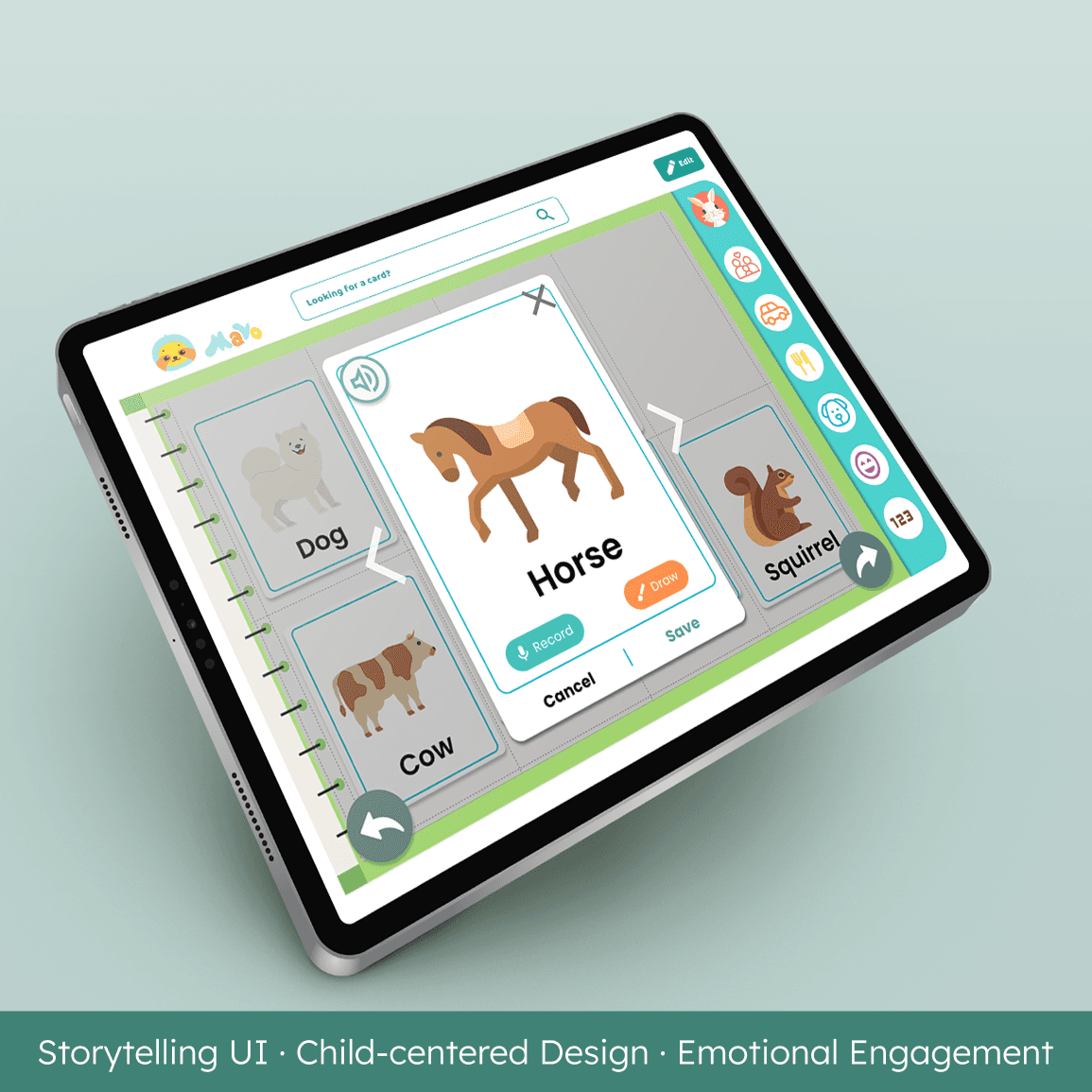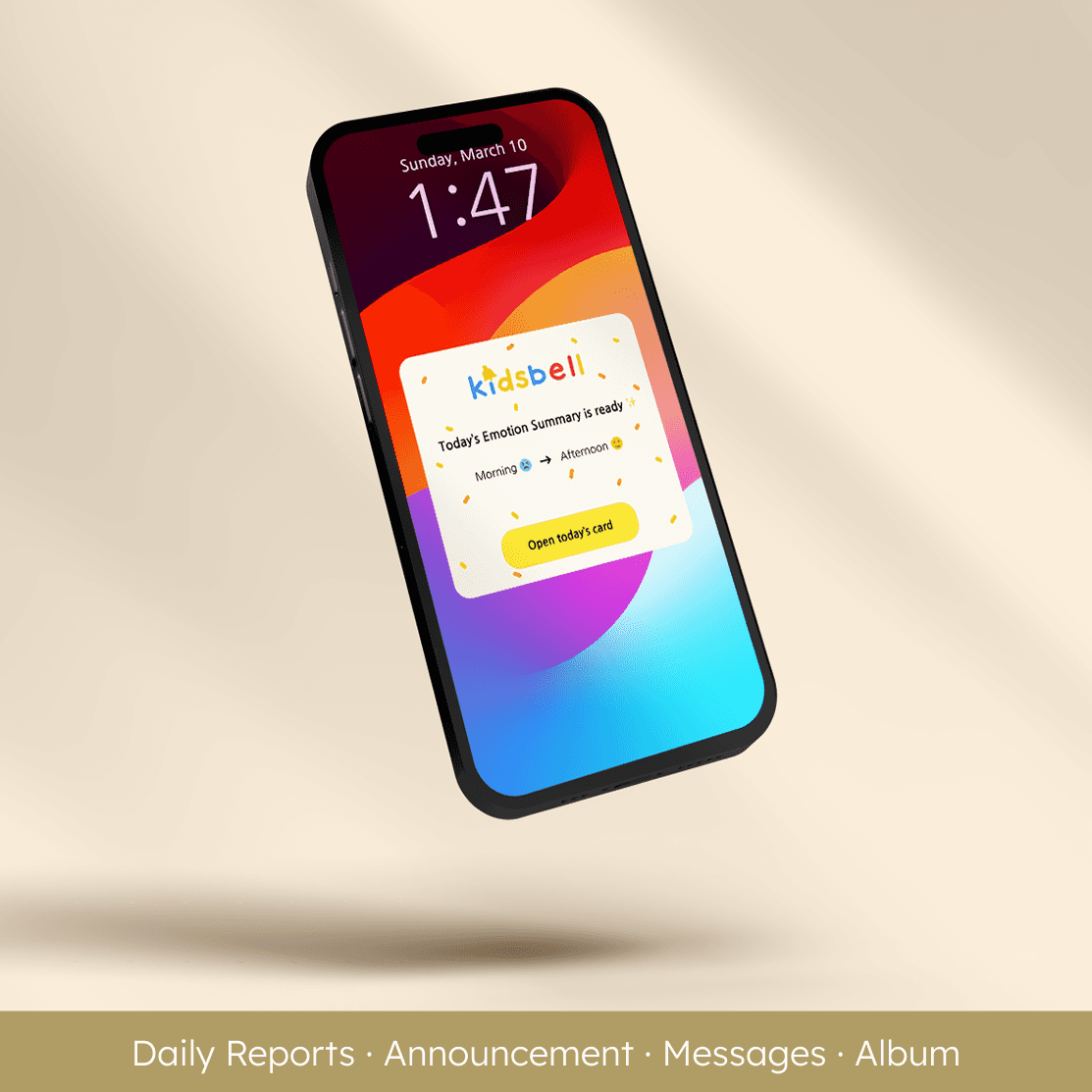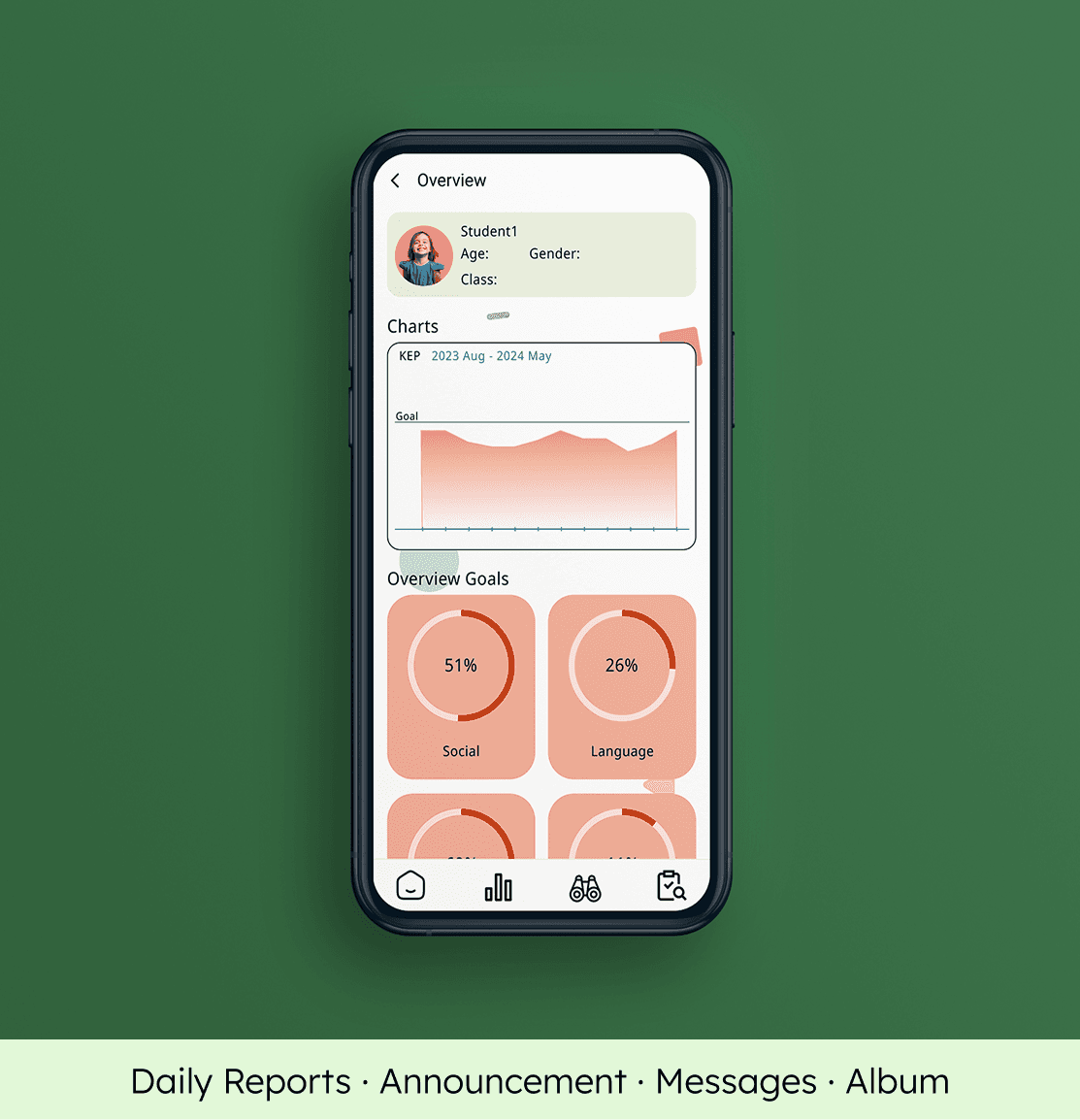SafeDoser
SafeDoser
SafeDoser
Reimagining supplement safety through adaptive, conversational design.
Reimagining supplement safety through adaptive, conversational design.
Reimagining supplement safety through adaptive, conversational design.



Team Project
Team Project
Team Project
Role: Interaction designer 100%(User research, prototyping)
Interaction designer 100%(User research, prototyping)
Role: Interaction designer 100%(User research, prototyping)
DURATION
DURATION
DURATION
MAY 2025 - JUN 2025
May 2025 - Jun 2025
MAY 2025 - JUN 2025
TOOLS
TOOLS
Figma, HTML, CSS, JS, Python
Figma, HTML, CSS, JS, Python
Every day safety depends on luck.
Every day safety depends on luck.
Every day safety depends on luck.
You might take a few daily supplements like vitamins, magnesium, or something for sleep, trusting the labels and your routine. But recalls can slip by unnoticed or ingredients can overlap without warning.
Most users manage multiple OTC products with scattered reminders and complex safety notices, often unaware of risks until it’s too late.
You might take a few daily supplements like vitamins, magnesium, or something for sleep, trusting the labels and your routine. But recalls can slip by unnoticed or ingredients can overlap without warning.
Most users manage multiple OTC products with scattered reminders and complex safety notices, often unaware of risks until it’s too late.
You might take a few daily supplements like vitamins, magnesium, or something for sleep, trusting the labels and your routine. But recalls can slip by unnoticed or ingredients can overlap without warning.
Many people manage multiple OTC products without reliable safety information, often unaware of interactions or recalls until it’s too late.
As supplement use increases, safety has become a personal task rather than a guided process.
Most tools focus on reminders, not context, making alerts either too frequent or too late.
This opened an opportunity to create a system that feels adaptive, human, and trustworthy, delivering safety information at the right time, in plain language, with no extra effort.
As supplement use grows worldwide, safety has become a personal responsibility rather than a guided process. Existing tools focus on tracking or reminders but fail to adapt to user context, making safety alerts either too frequent or too late.
This gap created an opportunity to design a system that feels adaptive, human, and trustworthy, where safety information reaches people at the right time, in plain language, and without extra effort.
As supplement use increases, safety has become a personal task rather than a guided process.
Most tools focus on reminders, not context, making alerts either too frequent or too late.
This opened an opportunity to create a system that feels adaptive, human, and trustworthy, delivering safety information at the right time, in plain language, with no extra effort.
What's the problem?
What's the problem?
What's the problem?
OTC supplement use is increasing, but safety awareness isn’t keeping up.
OTC supplement use is increasing, but safety awareness isn’t keeping up.
OTC supplement use is increasing, but safety awareness isn’t keeping up.
People take more over-the-counter products than ever, yet most still lack reliable ways to track recalls or dosage safety.
People take more over-the-counter products than ever, yet most still lack reliable ways to track recalls or dosage safety.
People take more over-the-counter products than ever, yet most still lack reliable ways to track recalls or dosage safety.
This growing gap between usage and awareness makes supplement management inconsistent and risky.
This growing gap between usage and awareness makes supplement management inconsistent and risky.
This growing gap between usage and awareness makes supplement management inconsistent and risky.
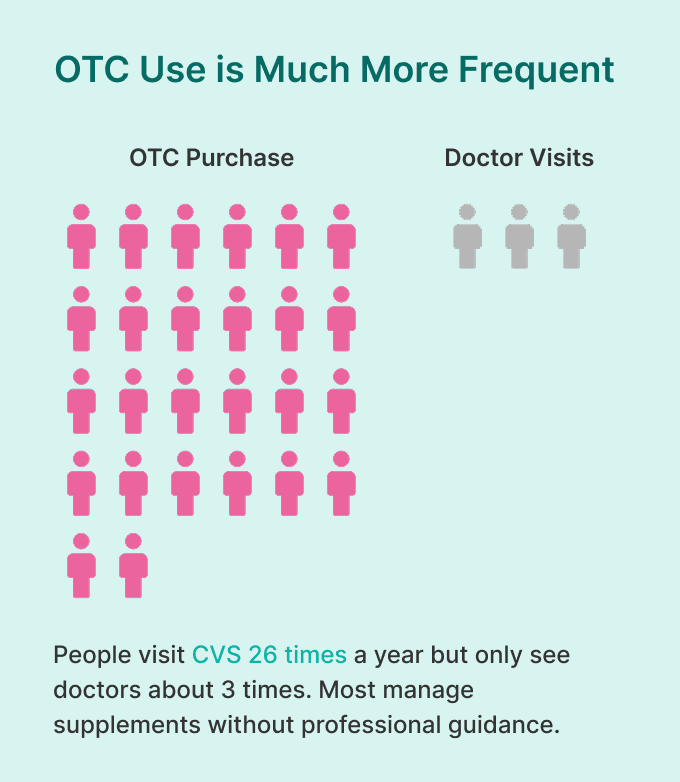


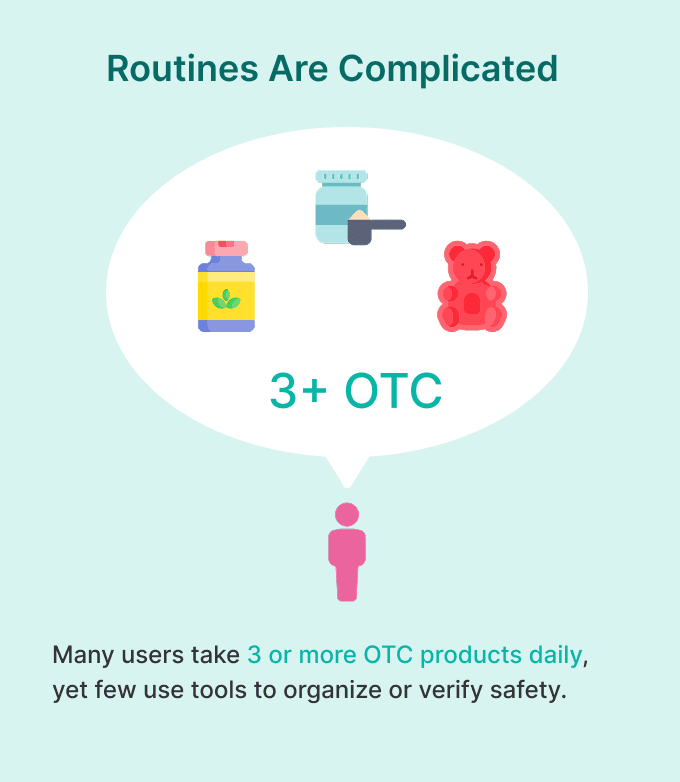


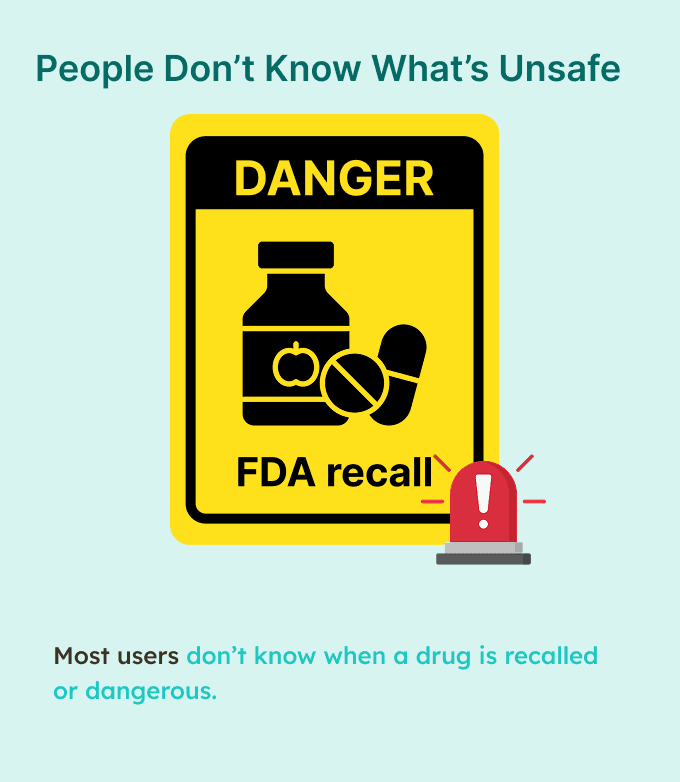


What's the solution?
What's the solution?
What's the solution?
Redefine supplement safety as an adaptive, conversational system.
Redefine supplement safety as an adaptive, conversational system.
Redefine supplement safety as an adaptive, conversational system.
SafeDoser integrates FDA recall data, dosage reminders, and visual guidance into one connected experience.
SafeDoser integrates FDA recall data, dosage reminders, and visual guidance into one connected experience.
SafeDoser integrates FDA recall data, dosage reminders, and visual guidance into one connected experience.
By focusing on tone, timing, and trust, the system delivers safety information that feels relevant, empathetic, and easy to act on.
By focusing on tone, timing, and trust, the system delivers safety information that feels relevant, empathetic, and easy to act on.
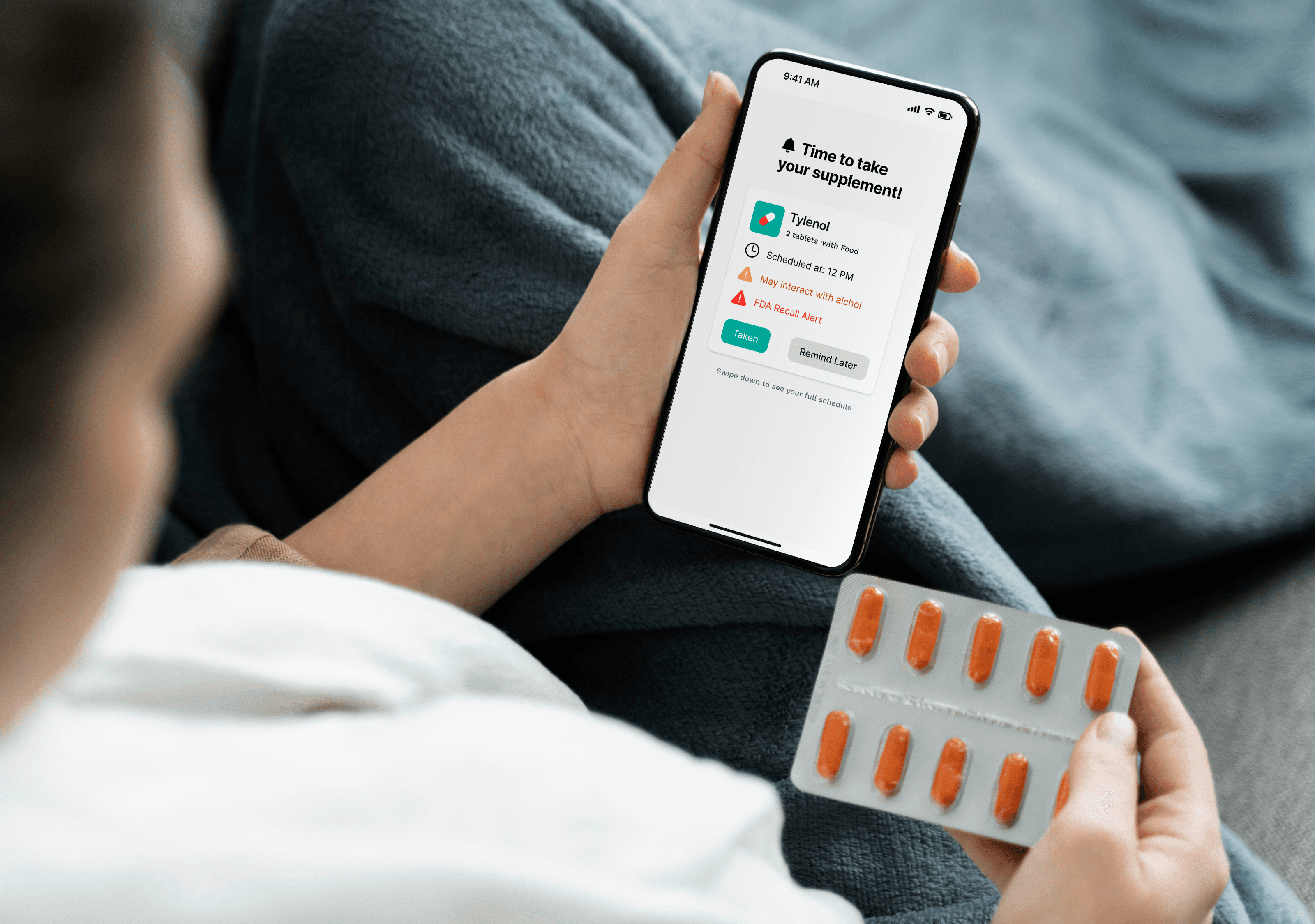


Discovery & research
Discovery & research
Discovery & research
Understanding why users miss critical safety alerts
Understanding why users miss critical safety alerts
Understanding why users miss critical safety alerts
Through surveys and interviews, I found that over 60% of users take three or more OTC products at once,
yet nearly 70% rarely notice recall or interaction alerts until it’s too late.
Through surveys and interviews, I found that over 60% of users take three or more OTC products at once,
yet nearly 70% rarely notice recall or interaction alerts until it’s too late.
Through surveys and interviews, I found that over 60% of users take three or more OTC products at once,
yet nearly 70% rarely notice recall or interaction alerts until it’s too late.
Users described alerts as overwhelming, irrelevant, or hard to understand.
Users described alerts as overwhelming, irrelevant, or hard to understand.
Users described alerts as overwhelming, irrelevant, or hard to understand.



Key challenges
Key challenges
Key challenges
Alerts sound too technical, causing stress or confusion
Users can’t tell when safety information is important
Current tools don’t adapt to personal routines or behaviors
Alerts sound too technical, causing stress or confusion
Users can’t tell when safety information is important
Current tools don’t adapt to personal routines or behaviors
Alerts sound too technical, causing stress or confusion
Users can’t tell when safety information is important
Current tools don’t adapt to personal routines or behaviors
From Research to Insights
From Research to Insights
From Research to design opportunities
Research revealed three critical gaps that shaped the design direction.
Research revealed three critical gaps that shaped the design direction.
Research revealed three critical gaps that shaped the design direction.

Safety as Guidance
Safety as Guidance
Safety as Guidance




People use OTC meds more often than they visit doctors, but manage them without help.
People rely on supplements over clinic visits, with little support.
People rely on supplements over clinic visits, with little support.
People rely on supplements more than clinicians, yet lack timely guidance

Trust Through Context
Trust Through Context
Trust Through Context




Alerts must adapt to when users actually need them.
Alerts must adapt to when users actually need them.
Alerts must adapt to when users actually need them.

Recall Risks Go Unseen
Recall Risks Go Unseen
Recall Risks Go Unseen




Most users don’t know when a product is recalled, until it’s too late.
Most users don’t know when a product is recalled, until it’s too late.
Most users don’t know when a product is recalled.
So what:
So what
So what:
These are not just functional gaps but interaction gaps. Users need tools that adapt to their context and communicate in their language.
These are not just functional gaps but interaction gaps. Users need tools that adapt to their context and communicate in their language.
These are not just functional gaps but interaction gaps. Users need tools that adapt to their context and communicate in their language.
User Journey & Personas
User Journey & Personas
User Journey & Personas
Understanding emotional friction in supplement routines
Understanding emotional friction in supplement routines
Understanding emotional friction in supplement routines
Users experience anxiety when they feel uncertain about safety or dosage.
Users experience anxiety when they feel uncertain about safety or dosage.
Users experience anxiety when they feel uncertain about safety or dosage.
Mapping daily habits revealed how and when trust breaks down during their routines.
Mapping daily habits revealed how and when trust breaks down during their routines.
Mapping daily habits revealed how and when trust breaks down during their routines.
(Click the image to zoom in.)



User journey map
User journey map
User journey map
User routines reveal moments of anxiety and uncertainty, where timely and human guidance can rebuild trust in supplement safety.
User routines reveal moments of anxiety and uncertainty, where timely and human guidance can rebuild trust in supplement safety.
User routines reveal moments of anxiety and uncertainty, where timely and human guidance can rebuild trust in supplement safety.
(Click the image to zoom in.)






"How might we design a supplement safety system that feels adaptive, clear, and human??
"How might we design a supplement safety system that feels adaptive, clear, and human??
"How might we design a supplement safety system that feels adaptive, clear, and human??
What's the idea?
What's the idea?
What's the idea?
To make safety guidance approachable, I focused on clarity, timing, and empathy.
The goal was to replace static alerts with adaptive reminders that fit naturally into users’ daily patterns.
The app centers on supplement registration, context-aware notifications, and a conversational chatbot, ensuring safety information arrives at the right moment and in plain language.
The user flows focus on two pillars, context-aware nudges and conversational guidance, making safety feel timely, intuitive, and natural.
To make safety guidance approachable, I focused on clarity, timing, and empathy.
The goal was to replace static alerts with adaptive reminders that fit naturally into users’ daily patterns.






screen flow
screen flow
screen flow
The screen flow connects alerts, reminders, and confirmations into one continuous guidance loop.
The screen flow connects alerts, reminders, and confirmations into one continuous guidance loop.
The screen flow connects alerts, reminders, and confirmations into one continuous guidance loop.
From registration to recall alerts, every step uses clear hierarchy and friendly microcopy to reduce stress and build trust.
From registration to recall alerts, every step uses clear hierarchy and friendly microcopy to reduce stress and build trust.
From registration to recall alerts, every step uses clear hierarchy and friendly microcopy to reduce stress and build trust.



Prototype Overview
Prototype Overview
Prototype Overview
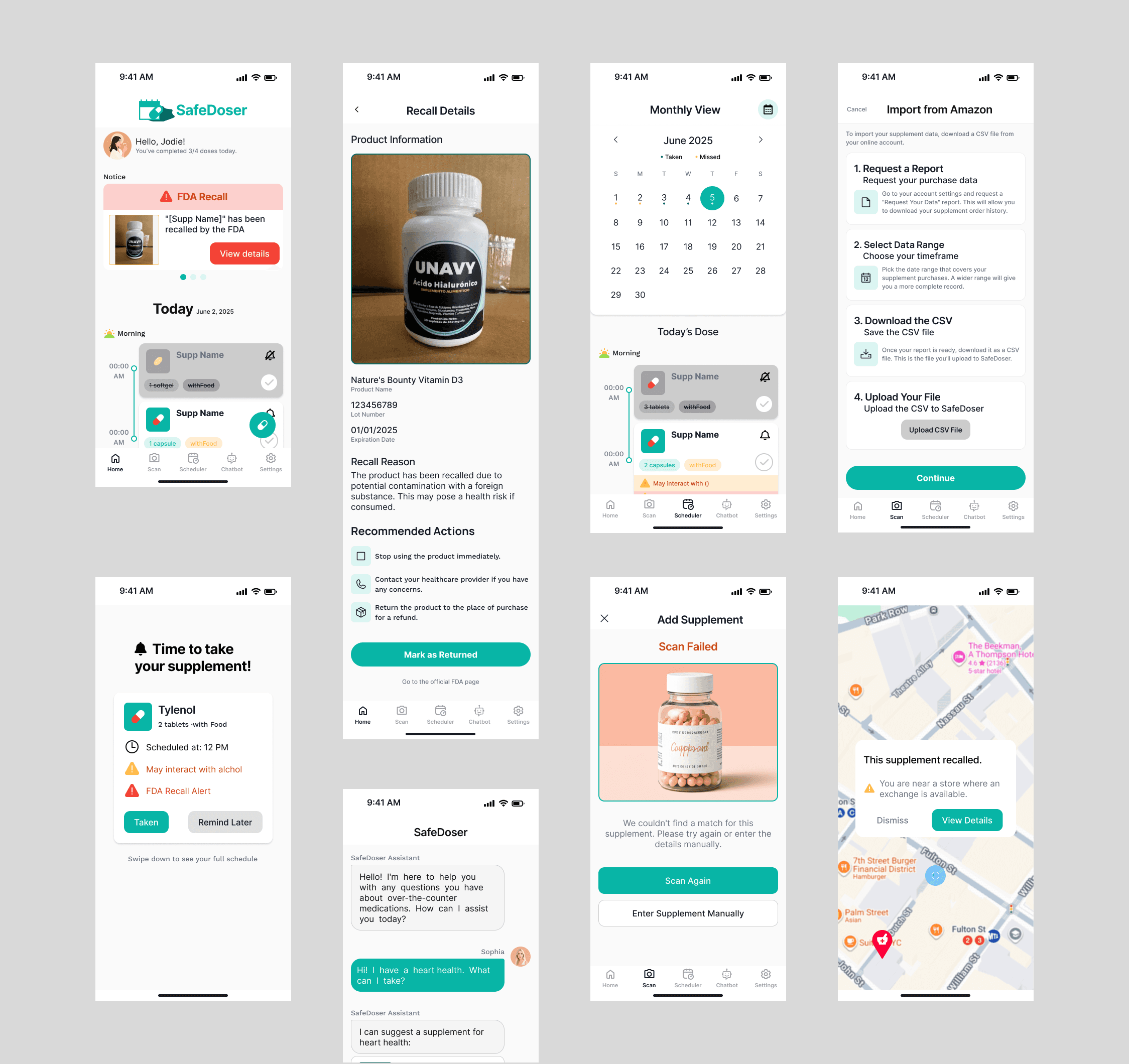


Interaction Details
Interaction Details
Interaction Details



Context-aware Safety Alerts
Context-aware Safety Alerts
Context-aware Safety Alerts
Notifications adapt to each user’s context instead of fixed schedules.
Notifications adapt to each user’s context instead of fixed schedules.
Notifications adapt to each user’s context instead of fixed schedules.
This design minimizes alert fatigue and builds trust through relevant, timely communication.
This design minimizes alert fatigue and builds trust through relevant, timely communication.
This design minimizes alert fatigue and builds trust through relevant, timely communication.
Conversational Guidance
Conversational Guidance
Conversational Guidance
Users can ask questions in plain language, such as “Is this supplement safe with magnesium?”
Users can ask questions in plain language, such as “Is this supplement safe with magnesium?”
Users can ask questions in plain language, such as “Is this supplement safe with magnesium?”
Micro-interactions transform safety alerts into meaningful dialogue, making health guidance approachable and human.
Micro-interactions transform safety alerts into meaningful dialogue, making health guidance approachable and human.
Micro-interactions transform safety alerts into meaningful dialogue, making health guidance approachable and human.



Reflection
Reflection
Reflection
Designing for clarity and calm
Designing for clarity and calm
Designing for clarity and calm
Through testing, I learned that trust in health design grows from consistency, not control.
Through testing, I learned that trust in health design grows from consistency, not control.
Through testing, I learned that trust in health design grows from consistency, not control.
Designing safety meant prioritizing tone, timing, and empathy to reduce cognitive noise and support confident decision-making.
Designing safety meant prioritizing tone, timing, and empathy to reduce cognitive noise and support confident decision-making.
Designing safety meant prioritizing tone, timing, and empathy to reduce cognitive noise and support confident decision-making.
Next
Next
Next
Expand barcode integration for faster registration
Expand barcode integration for faster registration
Expand barcode integration for faster registration
Add calendar sync for missed-dose tracking
Add calendar sync for missed-dose tracking
Add calendar sync for missed-dose tracking
Enhance chatbot guidance for personalized reassurance
Enhance chatbot guidance for personalized reassurance
Enhance chatbot guidance for personalized reassurance
